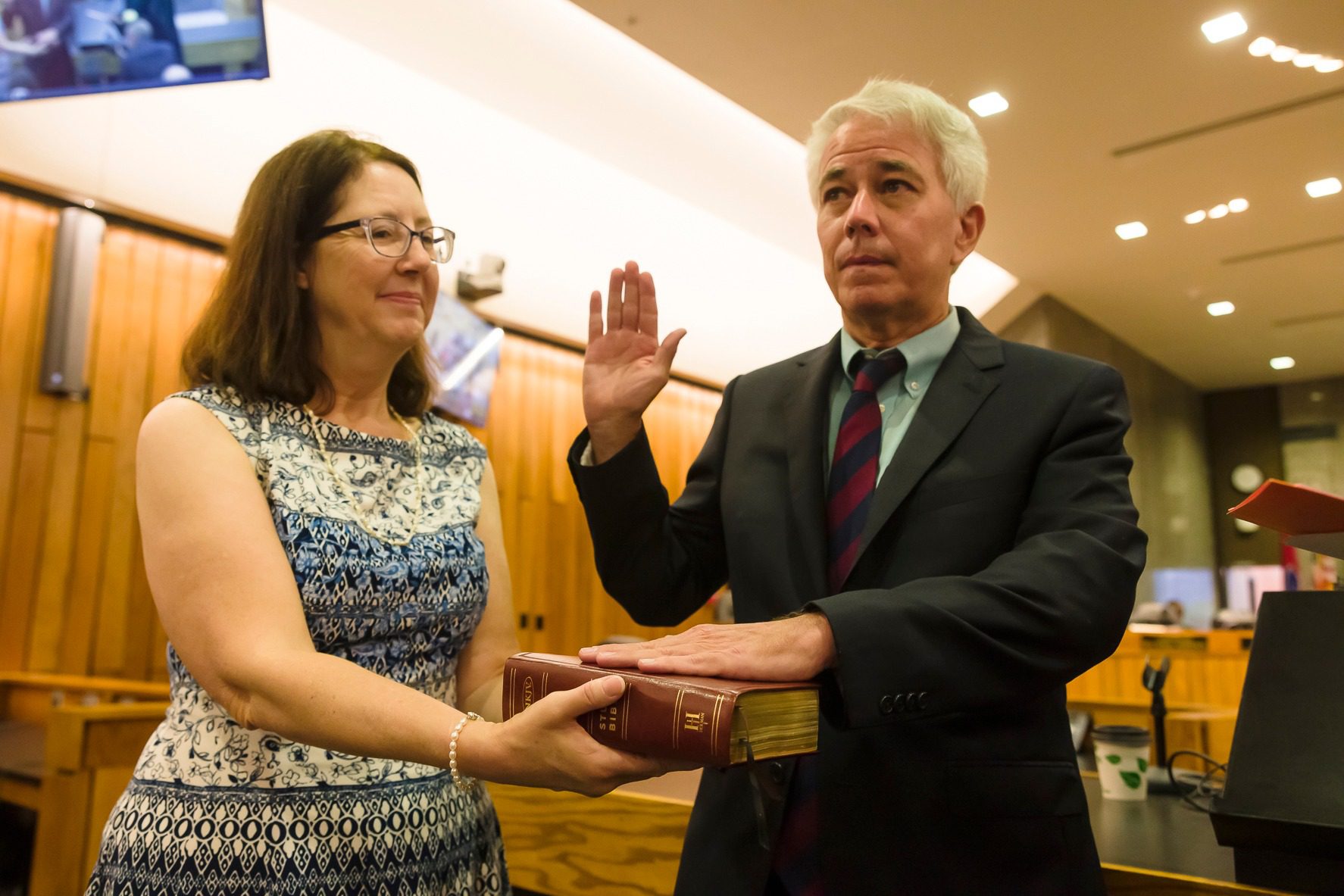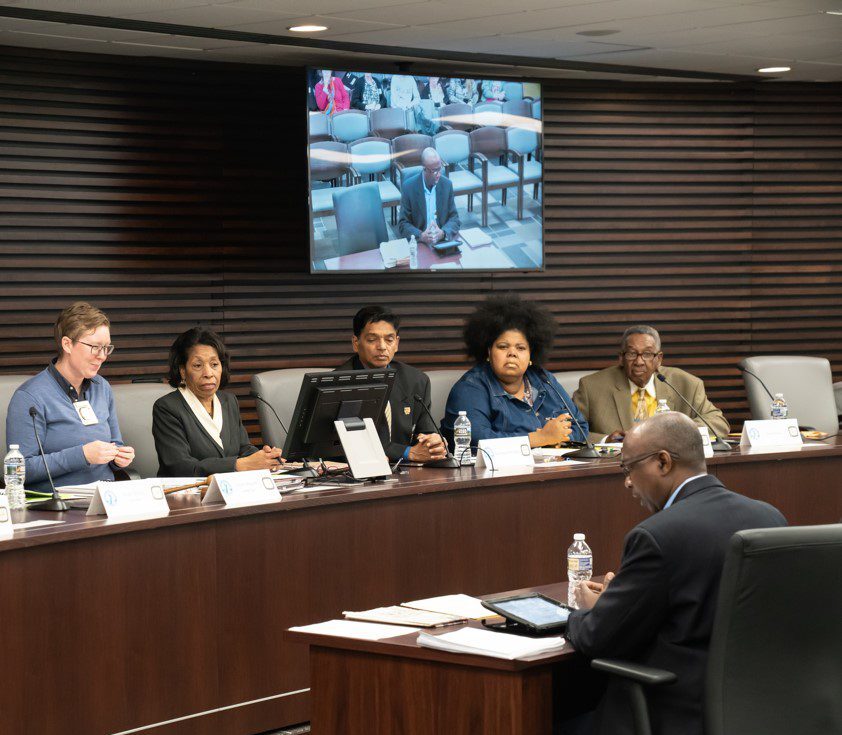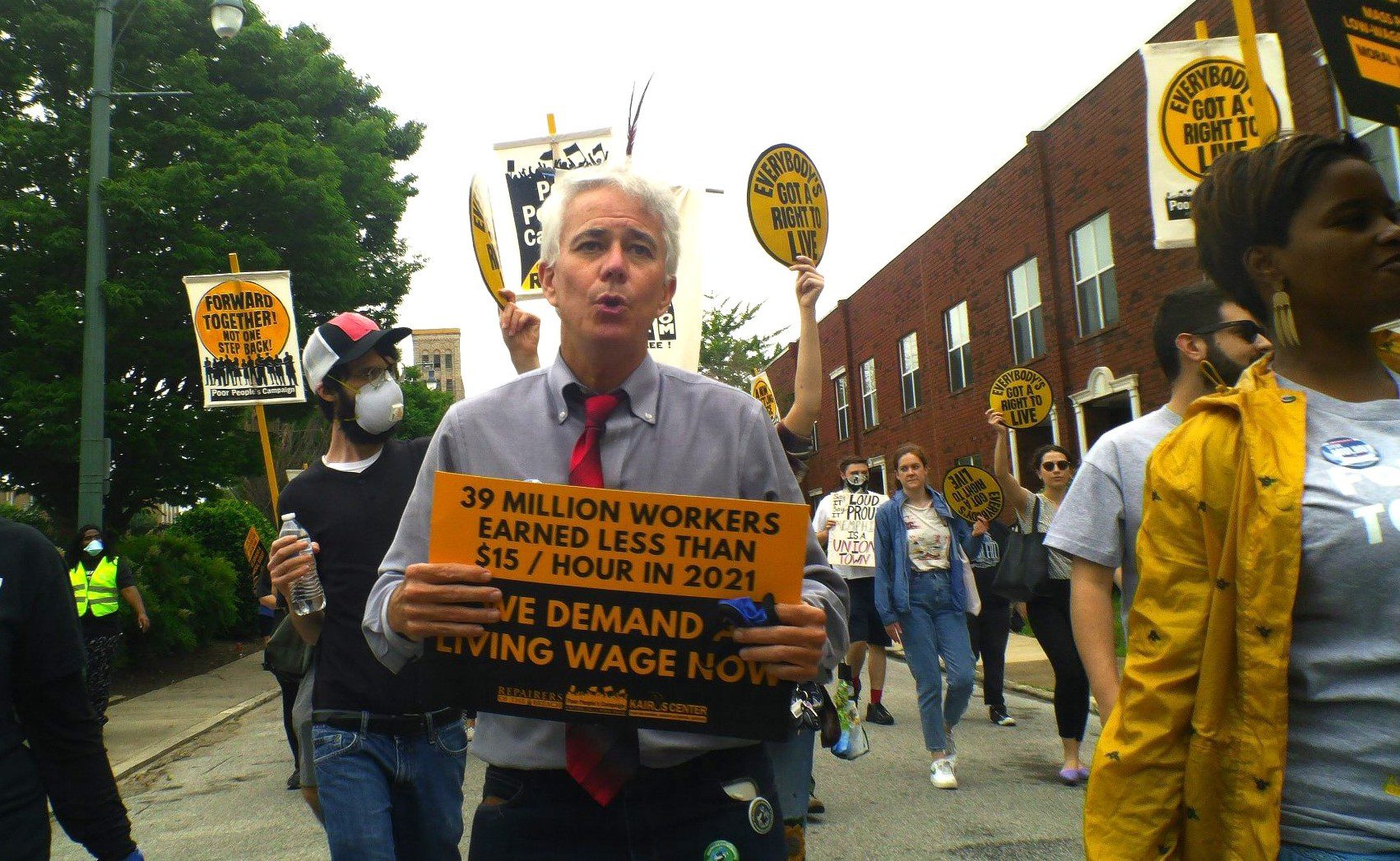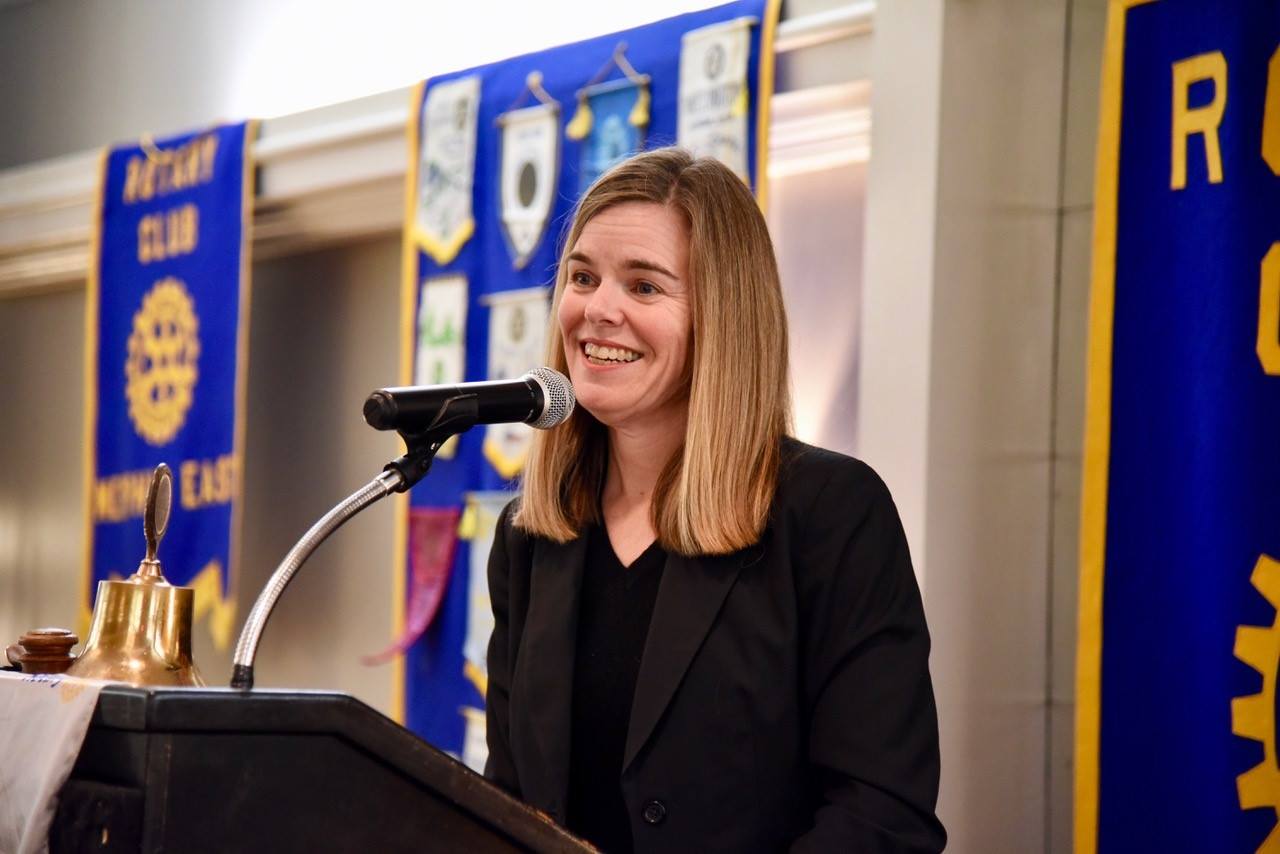The New DA of Memphis Wants to Break with the Past, to a Point
Steve Mulroy has acted swiftly to indict the police officers who killed Tyre Nichols. Now the DA who ran on reform faces more questions on how he’ll confront police violence.
| February 9, 2023

Two weeks after Tyre Nichols died from the injuries he sustained at the hands of a number of police officers in Memphis, Tennessee, something unusual happened: Shelby County District Attorney Steve Mulroy charged five of the officers with murder. This was statistically notable: of the nearly 1,200 people killed by police in 2022, criminal charges were subsequently filed against just 9 officers. Even those rare instances usually take longer and require sustained public pressure.
Mulroy’s swift charges have encouraged onlookers in Memphis and across the United States. “It made a difference,” said Raumesh Akbari, a state senator from Memphis. “It made the community feel like there would be some level of accountability—and punishment, to be perfectly honest with you—for the murder of Tyre Nichols.”
Akbari was a strong supporter of Mulroy’s successful bid for DA last year, when the Democrat ran as a reformer against incumbent Republican Amy Weirich, who was long denounced by local organizers for racially discriminatory practices and egregious abuses of power. “A lot of times people are not paying attention to the full scope of a position like the DA,” Akbari told Bolts. “I mean, it has the potential to completely impact hundreds of thousands of people throughout the city.”
But the real test of Mulroy’s tenure as Shelby County DA is what he does next—how he confronts a deep and abiding legacy of police misconduct and brutality in Memphis.
In conversation with Bolts over the last week, local organizers as well as advocates who have worked on policing elsewhere called for a variety of changes, such as using the DA’s pulpit to encourage fewer police stops and reopening old cases involving the SCORPION police unit, which has been disbanded after public outcry and accusations that its deadly violence towards Nichols was merely an extreme example of a brutal status quo. These are moves that prosecutors in other parts of the country have implemented in the wake of police misconduct.
Mulroy told Bolts in a wide-ranging interview on Monday that he was open to some of these demands and to talking about them with community groups. The death of Tyre Nichols, he said, has “highlighted the need for us to have a broader conversation about police reform—and I think given a renewed sense of urgency about having that conversation.” He has implemented some proposals put forth by progressive groups since coming into office, such as creating a new Justice Review unit to root out wrongful convictions, though he said he had not made any definite decisions on a number of policy initiatives Bolts queried him about.
The DA said, however, he has no plans to direct his office to reopen past cases where people were convicted based on the work of one of the officers now under indictment or other SCORPION officers. The release of video footage of Nichols’s death in late January showed that the initial police reports of how he was stopped and what followed were wildly inaccurate. (Editor’s note: Mulroy announced on Feb. 9 that he would review any past cases and convictions involving work conducted by the officers he charged.)
Somil Trivedi, an expert on police accountability who currently works as the chief legal and advocacy director at Maryland Legal Aid, says that there’s a “naturally symbiotic relationship” between prosecutors and police that stands in the way of DAs taking steps to curb misconduct. Prosecutors have to “rely on the same police for his day job” that they need to also hold accountable.
Trivedi stressed that Mulroy is one of just a handful of elected DAs around the country who has cultivated a sense of independence from their police forces. “The community shouldn’t have to wonder, when there’s a police shooting or police violence, what’s going to happen—-and right now they do,” Trivedi added.
Mulroy must also navigate the threat of backlash from the police he has attempted to hold accountable and from statewide officials in Tennessee’s conservative political climate, as well as the legacy of racial injustice and police impunity his office has contributed to, which he must now work to transform.
“We understand that he inherited this,” said Tikeila Rucker, an organizer with Memphis For All, an organization that supports social justice issues. “It won’t be overnight that we’re out of this space.”
“We’ve been asking for these things for years and had some of these things been implemented,” she added, “it could have been a preventive measure.”
In March 2022, Rucker and four other Memphis-based advocates penned a letter to the Shelby County Board of Commissioners, calling for an independent racial equity audit of Weirich’s office. “Race discrimination in our legal system—from how Black people are prosecuted and punished more harshly, to how Black crime victims are dismissed and disregarded—is a crisis that can no longer be ignored,” they wrote. “It is a crisis that threatens public safety on the whole.”
The group cited Weirich’s office’s prosecution of a Black woman, Pamela Moses, for registering to vote while she was barred due to a felony conviction, which resulted in Moses receiving a six-year sentence. (A judge later overturned the ruling.) It also highlighted Weirich’s treatment of Black children, noting that her office prosecuted more children in adult court than every other Tennessee DA combined—and that between 2018 and 2020, 98 percent of those children were Black. In 2012, the year after she took office, the U.S. Department of Justice had imposed a consent decree on Shelby County owing to longstanding patterns of racial discrimination against Black kids; a monitor later said the county “actively resisted compliance.”
Weirich did not respond to a request for comment from Bolts for this story.
Local officials over the years have pointed to the threat of violent crime to justify a slate of punitive measures, including the adult prosecution of children, but also ramping up policing and creating elite groups like the SCORPION unit, whose officers terrorized Memphians well before they came into contact with Nichols.
But for critics of those policies, these “tough-on-crime” decisions were only fueling the problem. “A lot of the issues that we’re dealing with on the back end is because we fail to properly handle juvenile crime,” Akbari said. “We have juveniles who become adult offenders…we have to look at the real systemic issues of poverty, lack of education.”
And they felt frustrated in their warnings about the effects of ramping up police presence. “[We had been speaking] about police brutality for years, but it was falling on deaf ears,” Rucker told Bolts.
In 2021, local groups organized themselves into a coalition called the Justice and Safety Alliance. Their goal was to propose alternatives and act as a counterweight to the Memphis Crime Commission, an influential private organization which advocates largely for tough on crime policies, including expanding the number of police in Memphis, and whose board includes public officials. (In 2020, The Marshall Project sued to get the commission to turn over documents about funds it had received and passed on to law enforcement, calling it the “functional equivalent” of a state agency).
Cardell Orrin, executive director of the Tennessee branch of Stand the Children, which is part of the Justice and Safety Alliance, says the Memphis Crime Commission exemplifies the intimate connections between police and prosecutors. The group has traditionally played kingmaker for DA hopefuls, Orrin said; it has also funneled donations to law enforcement and influenced police policy, for instance by hiring Ray Kelly, the former NYPD commissioner and stop-and-frisk defender, whose recommendation that the Memphis Police Department expand its gang unit was taken up by the department.
Mulroy told Bolts he had accepted the commission’s invitation to sit on its board but left the door open to leaving, adding that he opposed many of their favored policies and had advocated for adding criminal justice reformers on the commission.
“It’s just somewhat insidious,” Orrin said of the commission’s role in local politics. For a long time, he added, “there wasn’t a coalition or partnership of organizations that represented the perspective that we had.”
During the 2022 DA race, the alliance released a platform that included several measures that could improve police accountability, including greater data transparency and the establishment of a conviction integrity unit to reexamine old cases that may be based on shaky or insufficient evidence. It also demanded the publication of a Do Not Call list, or Brady list, that lists officers with documented issues of bias or dishonesty so that prosecutors cannot bring cases based on these officers’ casework or testimony.
In running against Weirich, Mulroy echoed the themes of these local organizations, telling Bolts last year that he wished to confront the “demonstrated recent history of racial discrimination in our justice system.” Buoyed by national attention on Moses’s prosecution and by the light it cast on the punitive and racially unequal status quo of prosecution in Shelby County, he won handily with 56 percent of the vote.
Since then, Mulroy has made good on some of these goals. He established a new chief data officer role within his office and says he plans to create a public data dashboard in the model of those created by other progressive DAs. He has also kept his promise to implement a conviction review board—a move that had a hand in his recent decision to charge the five officers who fatally beat Tyre Nichols with murder.
“I’ve tasked my justice review unit not only with looking back over past cases to see if there have been wrongful convictions or wrongful sentences, but they’re also now advising me on prosecutorial recommendations in these officer-involved fatality cases—the same independence from law enforcement and separateness from the rest of my office that brings objectivity to the wrongful conviction and wrongful sentence analysis,” the DA told Bolts.
Mulroy said, however, that he had no plans to direct the unit to review past convictions that resulted from arrests made by SCORPION, even as their validity may be in question in the wake of revelations about the unit’s pattern of behavior towards civilians and its subsequent disbandment. “I haven’t decided to do any kind of broad-based comprehensive review of every case that might have had any involvement with the SCORPION unit,” he told Bolts.
Mulroy said he also has no such plan in place for past cases that involved testimony or reports made by the five officers he charged with murder: “I don’t right now think that’s necessary.”
(Editor’s note: On Feb. 9, Mulroy shifted the position he had shared with Bolts days earlier, announcing that his office would review all the cases involving these officers. His office still indicated no plan at that time to undertake a proactive review of SCORPION cases.)
Trivedi wants to see a review of past cases that involved the SCORPION unit. “There’s absolutely no reason why it shouldn’t be done every time a police officer is found to have committed misconduct,” he said. “Just like there are habitual offender police who are caught either lying or giving un-credible testimony on the stand, which is why we need a Brady list—we all know that there are officers who are habitual rule breakers in the streets and use excessive force.”
There are precedents for such revisitation: Just a few months ago, Manhattan DA Alvin Bragg and Brooklyn DA Eric Gonzalez said they would clear hundreds of cases that involved the testimony of police officers who faced allegations of lying or misconduct, calling them unreliable witnesses.
Some progressive prosecutors have also chosen to reopen old cases of police killings in which their predecessors had opted not to file charges. Chesa Boudin did so in San Francisco before he was recalled; across the bay, new Alameda DA Pamela Price recently announced she would look back into eight police killings and in-custody deaths. HuffPost has reported on the demands of some families in Memphis for new investigations into the deaths of their loved ones at the hands of police officers.
Mulroy told Bolts that his conviction review board would focus on current and future police killings rather than looking back into ones that occurred under his predecessor.
Rucker said that activists were also responding to Nichols’s killing by demanding that the police end pretextual traffic stops, a common practice for the SCORPION unit. Though this power technically lies with the police, a few elected prosecutors around the country (notably in Minnesota and Vermont) have put their police forces on notice that they will not charge crimes that result from certain traffic stops, citing the many ways that racial bias that can factor into decisions about which motorists to stop.
Mulroy said that he was open to the idea but hadn’t made up his mind yet on whether to proceed or which types of stops might qualify. “There’s a city council ordinance being considered that would deal with things like broken tail lights and tinted windows being too dark,” he told Bolts. “By the same token, those are the kinds of things that I would probably be looking at.”
Orrin worried that bolder action from Mulroy on this front could run afoul of not only the mayor and crime commission, who could accuse him of fostering lawlessness, but also the conservative state government. Republican leaders in Tennessee and other southern states have attempted to preempt progressive prosecutors’ initiatives before. In 2021, Tennessee passed a law allowing for the temporary removal of elected prosecutors who state their intention to avoid prosecuting certain categories of crime. Now, the Georgia legislature is mulling over a bill that would facilitate the ouster of DAs who do the same.
Orrin regretted that the state’s Republican leadership “has shown the willingness to impose its will on localities.” He added, “DA Mulroy is trying to walk a fine line of living in his progressive reform values, and also dealing with the reality that if he gets too far over his skis, or if they want to, the state can step in and potentially try to harm him.”
Rucker said she hoped Mulroy could heed the calls from the community and use his platform to try to get other elected officials on board with systemic change—so that no one else would have to go through what Tyre Nichols’s family has endured.
“The hope is that this propels us forward in a direction that we have already been trying to go as relates to criminal justice reform here in Memphis, [that] it does not disappear or dissipate once all the cameras are gone,” she said. “Because we are still here suffering.”
The article was updated on Feb. 10 to reflect new announcements made by Mulroy about his office’s approach to past cases involving the SCORPION unit.




